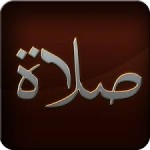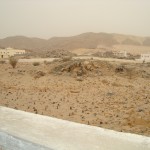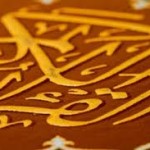Reciting Durood after Dua Qunut in Witr Salah
Question:
Is it permissible or advisable to recite Durood Shareef (Salutations) after the Dua of Qunut that hanafis normally make in the third rakah of their witr prayer? I have heard this attributed to Hazrat Maulana Yusuf Mutala. If correct, what durood do we read?
Answer:
In the Name of Allah, the Most Gracious, the Most Merciful.
As-salāmu ‘alaykum wa-rahmatullāhi wa-barakātuh.
Not only is reciting durood (sending salutations on the Holy Prophet ﷺ) after the Dua of Qunut permissible but, in fact, highly advisable and worthy of being made a habit of [1][2][3].
This has been well documented in the historical texts of fiqh, however, may not be commonly known as it is not discussed in some modern texts.
Hazrat Maulana Yusuf Mutala advocated for this, a long with many other of our recent senior predecessors, including Hazrat Mawlana Rashid Ahmad Gangohi, Hazrat Mufti Abdur Rahim Lajpuri, Hazrat Mufti Mahmoud Al-Hasan Gangohi and others (May Allah ﷻ be pleased with them all) [4][5][6].
Finally, one may recite any durood one knows in order to fulfil the objective or indeed simply say وصلى الله علي النبي .
[7][8]
May Allah ﷻ give us all the ability to engross ourselves in sending constant, sincere and excessive salutations on the Beloved Prophet ﷺ.
And Allah Ta’āla Knows Best
Asmar Akram
Concurred by:
Hanif Patel
Mu‘adh Chati
Approved by:
Mufti Siraj Sitponi Falahi
References
[1] إِنَّ اللَّهَ وَمَلَائِكَتَهُ يُصَلُّونَ عَلَى النَّبِيِّ ۚ يَا أَيُّهَا الَّذِينَ آمَنُوا صَلُّوا عَلَيْهِ وَسَلِّمُوا تَسْلِيمًا
[al-Qur‘an, 33: 56]
[2] وَقَنَتَ فِيهِ) وَيُسَنُّ الدُّعَاءُ الْمَشْهُورُ، وَيُصَلِّي عَلَى النَّبِيِّ - صَلَّى اللَّهُ عَلَيْهِ وَسَلَّمَ بِهِ يُفْتَى)
قَوْلُهُ وَيُسَنُّ الدُّعَاءُ الْمَشْهُورُ) قَدَّمْنَا فِي بَحْثِ الْوَاجِبَاتِ التَّصْرِيحَ بِذَلِكَ عَنْ النَّهْرِ)
[Radd al-Muhtar ‘ala ad-Durr al-Mukhtar, 6: 2, Dar al-Fikr Beirut]
[3] (وهل يصلي في آخر القنوت على النبي ) أم لا؟. (قال الفقيه أبو الليث: يصلي)؛ لأنها من جنس الدعاء وقد تقدمت الرواية بها من طريق النسائي في حديث - قنوت الحسن بن علي، قال ابن الهمام: ولا ينبغي أن يعدل عن هذا القول
(الحلبي الكبير اى غنية المتملى 2:228، دار الكتب العلمية لبنان)
[al-Halabi al-Kabir (Ghunyat al-Mutamalli), 2: 228, DKI]
[4] دعائے قنوت کے بعد درود شریف مستحب ہے
[Fatawa Rashidiyyah, p.244]
[5] جی ہاں نماز وتر میں دعائے قنوت پوری کر کے اللھم صلی علیٰ محمد وعلیٰ ال محمد پڑھنا مستحب ہے
(فتاوی رحیمیہ 5:237)
[Fatawa Rahimiyyah, 237: 5]
[6] اگر دعا قنوت کے ساتھ درود شریف ملا لیا جائے، تو یہ نہ صرف جائز بلکہ مستحسن قرار دیا جائے گا
(کتاب النوازل للمنصورپوری 4:571)
[Kitab an-Nawazil (of Ml. Mansurpuri), 571: 4]
[7] "وصلى الله على النبي" هذا هو الذي رواه النسائي فقط بدون وعلى آله وسلم كما يفهم من الشرح قوله: "صلينا" معلول لقوله ولما روى النسائي قوله: "وعلى آله وسلم" في الواقعات بعد ما ذكر اختيار الفقيه أبي الليث أنه يصلي قال والمستحب في كل دعاء أن يكون فيه الصلاة على النبي صلى الله عليه وسلم: "اللهم صل على محمد وعلى آل محمد" اهـ فهذا يفيد أن كيفية الصلاة على النبي صلى الله عليه وسلم في القنوت بهذه الكيفية ويشهد له ما أخرجه النسائي بسند صحيح عن زيد بن خارجة قال سألت رسول الله صلى الله عليه وسلم كيف الصلاة عليك فقال: "صلوا علي واجتهدوا في الدعاء وقولوا اللهم صل على محمد وعلى آل محمد وعنه صلى الله عليه وسلم الدعاء موقوف بين السماء والأرض لا يصعد حتى يصلى على فلا تجعلوني كغمر الراكب صلوا علي في أول الدعاء وأوسطه وآخره
[Hashiyat at-Tahtawi ‘ala Maraqiy al-Falah, p.381, DKI]
[8] Statement and Anecdotes of Faqeeh-ul-Ummat Malfoozat of Mufti Mahmood Hasan Gangohi 1:243
DISCLAIMER:
The Ask Our Imam site hopes to respond to queries relating to Islamic law. It is not an Islamic Law Shari`ah Court. The questions and answers found on this website are for educational purposes. However, many of the rulings rendered here are distinct to the specific scenario and thus should be read in conjunction with the question and not taken as a basis to establish a verdict in another situation or environment. This site bears no responsibility in these responses being used out of their intended context, nor to any party who may or may not follow the responses given and is being hereby exempted from loss or damage howsoever caused. None of the responses rendered may be used as evidence in any Court of Law without prior written consent of Our Imam. Any reference to another website or link provided in our responses or article should not be taken as an endorsement of all the content on that website; in fact, it is restricted to the particular material being cited.
Posted in Salaah (Prayer) on 31st Aug 2020 by Our Imam | 3089 Views





